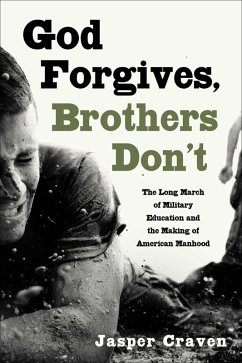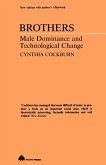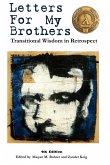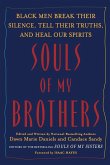In the tradition of Sebastian Junger’s Tribe and Chris Hedges’s classic War Is a Force that Gives Us Meaning, a powerful investigation into the fraught history and ominous future of military education in the United States, and how it formed and fuels increasingly volatile strains of American masculinity. Thanks to the prevalence of Boy Scouts, military schools, service academies, JROTC, ROTC, plus other networks of funding and influence, the military has secured a dominant position in the American educational system. This has given the brass outsized power in shaping our youth and, by extension, society at large. As investigative journalist Jasper Craven powerfully demonstrates in these pages, the military has long defined American masculinity and often fosters its most toxic traits. Craven makes this case by revisiting American military history—beginning with the American Revolution. The birth of our nation required a new masculine ideal, which was crafted in the image of America’s most beloved founding father: George Washington. During the brutality of the Civil War, Craven traces the parallel violence in military hazing culture, and the deeply prejudicial culture at places like West Point, which reared Jefferson Davis, Robert E. Lee, and other famed Confederates. The first and second World Wars escalated the need for battle-ready youth, and briefly resulted in a relatively noble male archetype, while the Cold War precipitated backlash, resentment, and trauma. This era also marked the beginning of the Christian right’s growing interest in military schools as upholding a patriarchal and fatalistic version of manhood. Vietnam and the anti-war movement also sparked panic around “the death of honor,” and an increasingly distrustful attitude towards institutions, fueling the rise of the lying, lawless operator, embodied by military school graduates like William Westmoreland and Oliver North. Lastly, Craven brings us through the wars in the Middle East and up through today, where the military has further burrowed into civilian education via STEM and other avenues. Meanwhile, policies like “don’t ask, don’t tell” and a campaign of Islamophobia has suffused a new manhood that is defined by its ability to both diminish and dehumanize “the other,” while also being self-destructive. Part sweeping military history, part journalistic investigation, God Forgives, Brothers Don’t lifts the veil on the harmful world of military schools and provides essential context and nuance to the ongoing debate on American masculinity.
Bitte wählen Sie Ihr Anliegen aus.
Rechnungen
Retourenschein anfordern
Bestellstatus
Storno








